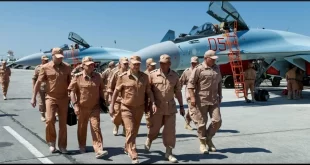Sep 18, 2013, Counterpunch.org
Obama’s push for war in Syria seemed so deeply irrational, so crazed, that many people naturally asked, “Why is this happening?” And “who” wants it to happen? Few Americans actually believed that Nobel Peace Prizing winning Obama suddenly wanted to bomb Syria because “Assad gassed his own people” (especially when zero evidence was given to prove this).
Many commentators have correctly stated that geopolitics is a main motivation for Obama wanting to bomb Syria, acting as a gateway to Iran. Other commentators have also correctly discussed the specific economic (capitalistic) interests as a war motive. And others still have, again correctly, focused on the importance of Israel as a factor towards pushing for war in Syria and eventually Iran. All three answers are correct, and have an inter-dependence that is complicated and difficult to quantify, since much of the truth is hidden from public view.
Problems arise in analysis, however, when one of these issues is separated from the broader context, as was done in a recent article by Jean Bricmont and Diana Johnstone. Their article, “The People Against the 800 Pound Gorilla,” focuses on the importance of the U.S. Israeli lobby — “the 800 Pound Gorilla” — and its push for war, while minimizing or dismissing other crucial economic and political motives.
The article makes many excellent points, especially how the Israeli lobby in the U.S., American Israel Public Affairs Committee (AIPAC), is fanatically pushing for war against Syria. Congress is also trying to be politically immune from ANY discussion about AIPAC activities, lest accusations of “anti-Semite” are indiscriminately flung at them.
The problem with the article, however, is that the authors elevate the Israeli gorilla to a weight class it doesn’t belong in; and in so doing the authors are forced to minimize the size of several other giant gorillas, whose combined weight overshadows the Israeli chimp.
One of the giant gorillas that the authors seek to shrink is the U.S. capitalist class. The following passage summarizes the author’s main point:
“People who think that capitalists want wars to make profits should spend time observing the board of directors of any big corporation: capitalists need stability, not chaos, and the recent wars only bring more chaos.”
This is, of course, true for many if not most U.S. corporations. The authors are also correct when they argue that the average writer who uses a capitalist-centered analysis to explain war wrongly “…sees capitalism as a unified actor issuing orders to obedient politicians on the basis of careful calculations.” The authors are correct that this type of clunky analysis lacks nuance and should be rejected.
But the authors also fail to give capitalism the nuance it deserves; they construct a capitalistic strawman so arid it spontaneously combusts. For example, the authors limit the definition of capitalism to a sector-specific basis, mentioning specific types of capitalists that are blamed for pushing war and dismissing them as lesser gorillas than the Israeli lobby.
In naming corporate names the authors make some good points, but somehow skip over the 1,600 pound gorilla in the room — the big banks, the motor force of capitalism in the U.S. The authors might respond to this criticism by saying the banks were purposely omitted because they do not “directly benefit” from war and are, therefore, not at the forefront of advocating it.
This would be false. As the dominant corporate sector in U.S. capitalism, the banks are also the most internationalist in scope; the recent second quarter profits of U.S. banks were $42.2 billion (!), most of this money was made in overseas investing using cheap Federal Reserve printed dollars.
When there are overseas barriers to these types of profits, such as currency controls and other restrictions on foreign investment — as exist in Syria, Iran, and China — these nations are viewed as “enemies” by the banks who cheerlead their destruction. A submissive nation with an “open” economy is very good for the profits of U.S. corporations, and submissiveness is best taught by fear, i.e., the threat of military intervention.
Of course, the banks don’t act alone, but lead a pro-war coalition of corporations, such as the lesser gorillas the authors mention, like weapons manufacturers, the giant construction companies that “rebuild” a bombed nation, oil companies, and a gaggle of other companies — and there are many — who directly benefit from war profiteering; not to mention the fact that every U.S. multinational corporation has a stake in ensuring that their business is operating in a secure environment, with minimal chance of being nationalized by the host country. Corporations lobby via coalitions and through think tanks and other associations more effectively than they do as individual corporate sectors.
Thus, the U.S. pro-war coalition pushes U.S. foreign policy towards war, particularly against U.S.-capitalist hostile countries, with the AIPAC tail eagerly wagging behind — but not wagging the dog itself. It is this coalition of mega-corporations that the neoconservatives and other elite think tanks speak for when they endlessly discuss how to best project U.S. military power abroad.
These strategists — such as the Project For a New American Century — are the “vanguard” of American capitalism, and their geopolitical outlook is firmly rooted in the economic interests of the corporations that most benefit from overseas investing. This fanatic drive to maintain and expand the U.S. global empire of military bases — which help keep submissive nations in line — is a core ingredient to making the massive profits that are the motor force of U.S. capitalism.
Thus, this more abstract concept of “empire” was yet another 800 pound gorilla missing from the authors’ analysis, intertwined as it is to corporations whose interests are being expressed. And although the authors are correct when they say that U.S. capitalists would rather dominate foreign markets through the normal processes of trade, this peaceful kind of market domination has become more difficult as the U.S. has declined economically in relation to emerging economies like China, India, Brazil, etc. The U.S. military is consequently relied on to keep alliances together and opponents submissive, in addition to its more mundane function of keeping trade routes open and safe. This is why any empire in its declining phase — like the U.S. — is especially dangerous, as it logically falls back on its sharpest tool — bombing — no matter how ”illogical” these bombings may appear.
The international game of geopolitics mirrors the corporate competition for international markets. With each country the U.S. dominates politically — through war — U.S. corporations profit as the primary lender, the primary military salesman, while also winning the tastiest natural resources “concessions,” and the biggest infrastructural contracts to build public works, not to mention many other privileges.
The authors also prematurely dismiss the role oil plays in U.S. foreign policy. It is not the individual oil companies that matter so much — as the authors suggest — but the role oil plays in broader geopolitics and as the motor of the U.S economy. Monopolizing this prized resource allows the U.S. massive deficit spending (war spending) via the “petro-dollar” trade, while ensuring that rival nations will be intimidated by the possibility of having the oil valve turned off. This is why the Middle East continues to be the prime objective for U.S. foreign policy. Of course, the giant oil corporations themselves play no small role in this process.
The authors also incorrectly minimize the ape of the military industrial complex (MIC), by arguing that the drawn-out military disasters of Afghanistan and Iraq have made the MIC gun shy, since “stupid wars” (as Obama put it) bring negative attention to the killing industry.
Yes, the military and its corporate parasites get better PR when “dumb wars” are avoided, but this superficial analysis ignores the “successful” bombing of Libya. It’s also not true, as the authors suggest, that the MIC only needs “the threat of war” — not actual war — to keep its profits high. Like any corporation, if the warehouses are full of inventory (bombs, in this case), then no new orders are needed, which of course drives down production and consequently profits.
To avoid the bad PR that “boots on the ground” brings, Obama has instead opted for illegal drone attacks, and Libya-style shock-and-awe bombing campaigns. Since a “no-boots-on-the-ground” policy makes classical regime change impossible, the U.S. foreign policy hawks seem to be shifting back to a balkanization policy (bomb and fragment) since the U.S. cannot tolerate strong independent nations anywhere which defend their own interests, though especially in the Middle East (Johnstone’s excellent book on the U.S.-NATO destruction of Yugoslavia, titled Fools Crusade, is a must-read on this policy). A country may be independent and strong — like Turkey and Israel — only if the nation is firmly welded behind U.S. economic and foreign policy.
Of course, the Israeli lobby, AIPAC, deserves a special place in any analysis of U.S. foreign policy in the Middle East, and the authors deserve credit for taking to task those who ignore this gorilla. But this primate expresses its power best as part of a coalition of pro-war powerhouses, not independently.
It’s true that AIPAC also has an independent power of politically influential lobbyists, with a limitless pocketbook — the nation of Israel —with which it can enact promises (bribes) of all kinds. And it’s true that Israel has a special place in U.S. geopolitics, essentially acting as a giant military base for U.S. foreign policy in the oil rich region.
But the bigger picture is that the infamous AIPAC lobbyists are connected in myriad ways to the banking industry, weapons manufacturers and other giant corporations, and therefore should be viewed as an important member of the pro-war coalition led by the big banks.
Ultimately, however, the U.S. empire existed before the nation of Israel was even born, and would continue if Israel no longer existed. Obama’s administration is not full of AIPAC lobbyists, but wealthy bankers.
The authors Bricmont and Johnstone deserve credit for bravely exposing the role of AIPAC in pushing the Syrian war drive, but by overstating AIPAC’s influence — while ignoring the power of the big banks and others — the real motive for war in U.S. foreign policy is shielded, protecting the super rich Americans who relentlessly warmonger for profit, and who are much more dangerous than the horde of lobbyists Israel sends into Congress.
 Syria Support Movement solidarity with the Syrian people
Syria Support Movement solidarity with the Syrian people




